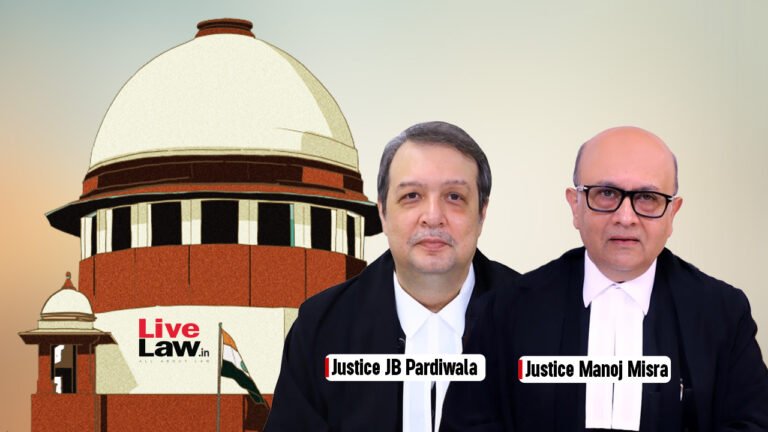
Supreme Court Raises Concerns Over Uttar Pradesh Anti-Conversion Law, Highlights Importance of Secularism and Privacy
The Supreme Court of India has expressed concerns over certain provisions of the Uttar Pradesh Prohibition of Unlawful Conversion of Religion Act, 2021, stating that they may put a burden on individuals wanting to adopt a faith other than the one they profess. The Court noted that the Act’s pre- and post-conversion declaration requirements, as well as the involvement of state authorities, may infringe upon the right to privacy and the fundamental right to freedom of religion. The judgment emphasizes the importance of secularism and the protection of individual autonomy in matters of faith and belief.
The Supreme Court’s decision to quash FIRs against the Vice Chancellor and other officials of the Sam Higginbottom University of Agriculture Technology and Science (SHUATS) in Prayagraj, over alleged forced mass religious conversions, has brought attention to the Uttar Pradesh Prohibition of Unlawful Conversion of Religion Act, 2021. The Court, comprising Justice JB Pardiwala and Justice Manoj Misra, while not examining the constitutionality of the Act, highlighted its concerns over the provisions that regulate religious conversions. The judgment emphasizes the importance of secularism, individual autonomy, and the right to privacy in matters of faith and belief. The Court observed that the Act’s requirements for pre- and post-conversion declarations, as well as the involvement of state authorities, may be overly burdensome and infringe upon individual rights.
Key Provisions of the Uttar Pradesh Anti-Conversion Law
The Uttar Pradesh Prohibition of Unlawful Conversion of Religion Act, 2021, mandates that individuals seeking to convert to a different religion must provide a declaration 60 days prior to the conversion, stating that there is no force, coercion, undue influence, or allurement. The person performing the conversion must also provide an advance notice of one month to the prescribed authority. The authority is then required to direct the police to conduct an inquiry. Failure to provide a pre-conversion declaration can result in imprisonment of up to three years and a minimum fine of Rs. 10,000. After the conversion, the individual must send a declaration to the prescribed authority within 60 days, which includes details such as their permanent address, place of residence, and the nature of the process undergone.
Concerns Over State Interference and Privacy
The Supreme Court expressed concerns over the involvement of state authorities in the conversion process, stating that it may infringe upon individual autonomy and the right to privacy. The Court wondered if the provision to publish the personal details of a converted person would be in conformity with judgments protecting the fundamental right to privacy. The judgment cites the KS Puttaswamy judgment, which states that Article 25 of the Constitution carries within it the facets of privacy rights, including the freedom of conscience and the choice to express it to the world at large.
The Importance of Secularism and Individual Autonomy
The Supreme Court emphasized the importance of secularism, stating that it is an intrinsic part of the basic structure of the Constitution. The Court noted that the Preamble to the Constitution guarantees the liberty of thought, expression, belief, faith, and worship, and that this liberty is an embodiment and expression of the secular nature of the country. The judgment also cites the Shafin Jahan v. Asokan K.M. judgment, which states that an individual’s autonomy is supreme in choices of faith and belief, and that the State and the law cannot control or limit an individual’s ability to decide on such matters.
Key Highlights of the Judgment
* The Supreme Court expressed concerns over certain provisions of the Uttar Pradesh Prohibition of Unlawful Conversion of Religion Act, 2021.
* The Court noted that the Act’s pre- and post-conversion declaration requirements may be overly burdensome and infringe upon individual rights.
* The judgment emphasizes the importance of secularism, individual autonomy, and the right to privacy in matters of faith and belief.
* The Court cited the KS Puttaswamy judgment, which states that Article 25 of the Constitution carries within it the facets of privacy rights.
* The judgment also cited the Shafin Jahan v. Asokan K.M. judgment, which states that an individual’s autonomy is supreme in choices of faith and belief.
Some of the key points of the judgment are:
* The Court’s concerns over the involvement of state authorities in the conversion process.
* The importance of protecting individual autonomy and the right to privacy in matters of faith and belief.
* The need to balance the right to freedom of religion with the need to prevent forced conversions.
* The importance of ensuring that individuals are not coerced or forced into converting to a different religion.
The judgment was delivered in the case of Rajendra Bihari Lal and Anr. v. State of U.P. and Ors., W.P.(Crl.) No. 123/2023 and connected cases. The petitioners were represented by Senior Advocates Siddarth Dave, Siddharth Agarwal, Rebecca M John, Advocate Vairawan A.S, and Pallavi Sharma. The State of UP was represented by Attorney General for India R Venkataramani and AAG Garima Prashad.
Conclusion
The Supreme Court’s judgment highlights the importance of secularism, individual autonomy, and the right to privacy in matters of faith and belief. The Court’s concerns over certain provisions of the Uttar Pradesh Prohibition of Unlawful Conversion of Religion Act, 2021, emphasize the need to balance the right to freedom of religion with the need to prevent forced conversions. The judgment is a significant development in the discussion around religious conversions and the role of the State in regulating individual choices. As the Court noted, the liberty of thought, expression, belief, faith, and worship is an embodiment and expression of the secular nature of the country, and it is essential to protect this liberty while preventing forced conversions.
Keywords: Supreme Court, Uttar Pradesh Anti-Conversion Law, Secularism, Individual Autonomy, Right to Privacy, Freedom of Religion, Forced Conversions.
Hashtags: #SupremeCourt #UttarPradeshAntiConversionLaw #Secularism #IndividualAutonomy #RightToPrivacy #FreedomOfReligion #ForcedConversions #ReligiousConversions #India #Constitution #FundamentalRights #PrivacyRights #FreedomOfBelief #FaithAndBelief #SecularNatureOfIndia #BasicStructureOfTheConstitution #KSPuttaswamyJudgment #ShafinJahanVAsokanKMJudgment.
Source link